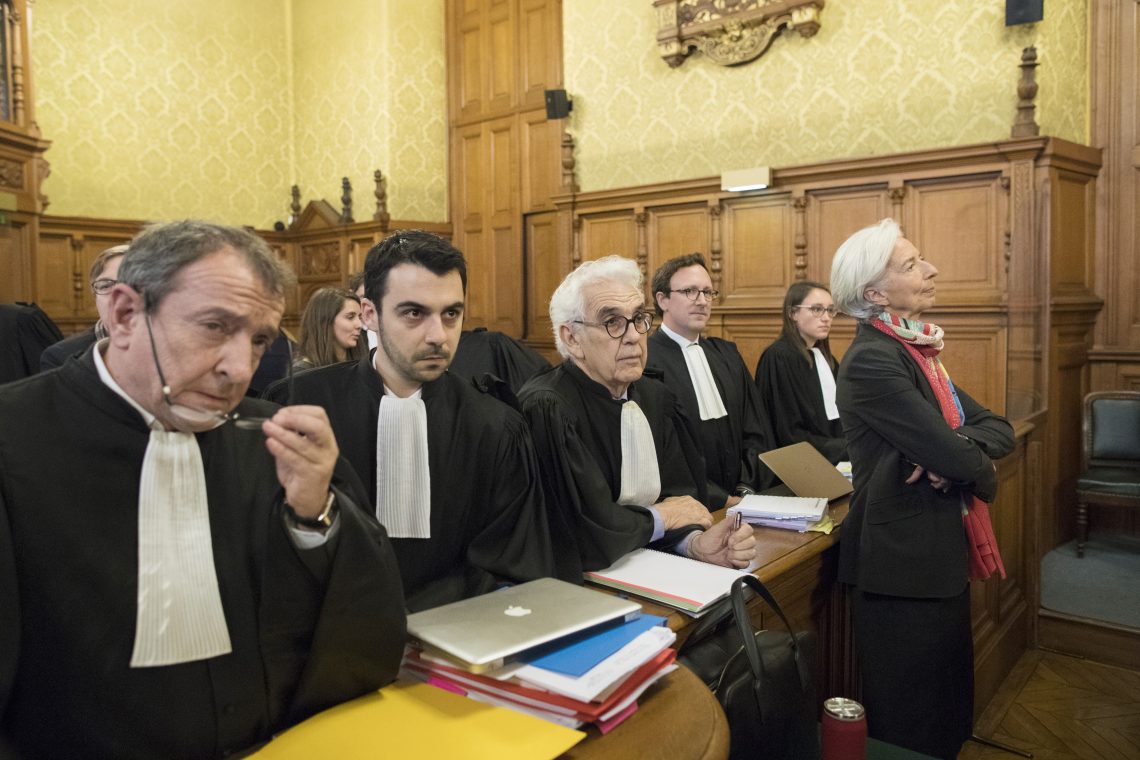The accountability deficit: Lessons from France
Genuine accountability, a critical ingredient for liberal democracies, has been eroded in Western governance through bureaucracy and fiscal illusion.

In a nutshell
- Efforts at accountability devolve into ineffective centralization
- Subsidiarity would bring citizens closer to policymaking
- The energy crisis may further erode accountability
A functional democracy includes elements like free and fair elections, the rule of law and accountability. Accountability regulates the behavior and decisions of actors in policymaking. Its first goal is more efficiency in public spending and regulation – or, at least, avoiding inefficiencies as much as possible. Often, accountability is presented as a prerequisite for “good governance.”
A second, less discussed goal is to ensure the openness and inclusiveness of decisions that is characteristic of democracy. When accountability is weak, it is thought to threaten the foundations and quality of democracy, and usually has a negative effect on both public finances and the quality of regulations.
While maximizing accountability seems desirable, it is not without challenges, both internal and institutional. Here, the focus will be on the fault line between a top-down, quasi-regulatory approach to accountability; and a bottom-up approach, based on a democratic culture in which the accountability reflex is gradually instilled.
Accountability’s accounts
The etymology of “accountability” likely comes from Medieval English lords who had to “render accounts” of their wealth to the king. While the direction of the relationship has gradually inverted – now scrutinizing the rulers, instead of the ruled – the notion of accountability still calls for some form of measurement of the goals being assessed.
While a sound idea, one challenge is that the need for measurement may become an obsession with measurement. Approaches to accountability that follow this path can be counterproductive. For example, at one point the French public hospital sector set out to better monitor spending and make the healthcare system more efficient, given the increasing financial challenges of the welfare state.
But gradually, a “bureaucracy of accountability” emerged. The spread of punctilious regulations has discouraged “accountable” doctors, who must beg for gauze or staples. Many end up leaving their hospitals. It has also become very costly, with the bureaucracy now representing more than a third of hospital employees, and a substantial opportunity cost in terms of the much-needed nurses and doctors left unhired.
Often, the causal link between decisions and consequences is not so straightforward – and those responsible can take advantage.
Accountability has been confused with control. The process has generated mistrust and resentment. And the accountability bureaucracy, together with the lucrative business of private consultancy firms, has itself become unaccountable.
Another limitation is “multiple accountability disorder,” with decision makers or organizations forced to render accounts to different principals interested in multiple conflicting goals. This can lead to serious inefficiencies in governance. In the private sector, it is a problem of stakeholder capitalism.
In a bureaucracy, rigid rules can negatively affect accountability. Rules cannot anticipate every situation, so they tend to suppress agents’ initiative. Some actors will succeed in squeezing power from these gaps in the rules. In turn, new rules will be created to prevent such power grabs, leading to even more sclerosis – and a lack of genuine accountability.
Transparency obscured
Transparency is an important, seemingly obvious dimension of accountability. Yet too much transparency can generate a flow of excess or redundant information, increasing complexity and weakening accountability. In public-private partnerships, an overabundance of transparency can clash with the inherent secrecy of doing business and the efficiency of delegation. In private and public organizations, exposing too much information about the various actions or micro-decisions of actors can depress motivation, as it can be perceived as a lack of trust from above.
Even when desirable, transparency can be rendered moot by the realities of policymaking. The unwanted effects of policies may take time to materialize; in the meantime, elections or appointments have shuffled the relevant decision makers. Often, the causal link between decisions and consequences is not so clear or straightforward – and those responsible can take advantage.
The energy crisis in Germany and France, for example, has not found many policymakers to hold to account. Or recall Christine Lagarde, head of the European Central Bank, claiming in a television interview last October that “inflation has just pretty much come about from nowhere.” To many, it was shocking that the person responsible for eurozone monetary policy would not even consider the incredible money creation from special programs of her own institution as a potential source of inflation. Her ECB salary of some 400,000 euros makes this sort of negligence even more disturbing. In both examples, blame was shifted onto the war in Ukraine.
Blame deflectors
Political institutions can also weaken accountability in order to protect the powerful. In 2016, Ms. Lagarde was found guilty of negligence in a dubious 2007 arbitration case between businessman Bernard Tapie and Credit Lyonnais, during her tenure as French finance minister. At a minimum, she was faulted for not contesting the arbitration decision, which was ultimately found unlawful in 2014.
That “negligence” cost the taxpayers 400 million euros. However, although Ms. Lagarde was found guilty, she was surprisingly not punished by the special court reserved for high-ranking politicians. For many citizens, this was a scandalous example of a “two-tier” justice system, benefiting the powerful in politics and institutionalizing an absence of accountability at the top.

At a more institutional level, the French constitution – with its bicephalous executive of an elected president and an appointed prime minister – has been criticized for making the president irreproachable. When voters are happy, the president gets the praise. When the public mood sours, the prime minister takes the blame, serving as a kind of fuse box to protect the head of state.
Such “institutional irresponsibility” in fact spreads from the top down to various layers of political and administrative spheres. It is seen as one important root of the lack of accountability in French politics.
Throughout history, attempts to strengthen accountability have included parliaments, audit offices and various regulations around oversight and transparency (such as declarations of possible conflicts of interest). However, political connections and cronyism can weaken those checks and balances. Thanks to “regulatory capture,” the letter of accountability is respected, but not the spirit. Despite a certain decorum of accountability, a democratic culture of accountability is missing.
Subsidiarity
One typical approach to shrinking the public accountability deficit is greater subsidiarity. Policies would be decided at the lowest administrative-political level possible – close to local citizens and funded by local taxpayers. There would still be policies at the national level, but with a clearer division of domains between the two.
Subsidiarity provides policymakers with incentives to respect the wishes and constraints of citizens and give them the maximum “bang for their buck.” Closer relationships with policymakers, since they are locally accessible, give citizens more incentive to hold those in power accountable for the use of their tax funds. Proximity also helps reduce knowledge problems, on both sides: local politicians have a better understanding of local needs, and residents have a better understanding of local decision-making. This helps improve the “transparency” dimension of accountability in particular.
Real oversight primarily comes not from audit offices, but from participatory democracy.
Subsidiarity typically gets citizens more involved in policymaking and democratic life. It helps foster more aware, proactive voters – those conscious of the costs of policies, not only of their benefits. It increases the quality of democracy, as well as institutional competition.
The effect here is not strictly regulatory in the top-down sense, but cultural. Real oversight primarily comes not from audit offices, which are of course important, but from participatory democracy – the real thing, not simply “deliberative” window dressing.
Listen for more on our podcast:
Public interest
The typical defense of centralization in national states – i.e., the case against subsidiarity – has been cast in terms of “equality” and the “public interest.” A republican, egalitarian system was said to address the potential problem of vested interests among lawmakers by forming a vast, mandarin-like elite dedicated to the public interest. Any need for accountability was solved by the ethics of public service.
Except, the supposedly “incorruptible” elite tended to compromise itself. France’s Ecole Nationale d’Administration network was a perfect example of this, full of revolving doors and personal enrichment thanks to conflicts of interest. In an elite-led system, those “guiding the people” are, by definition, above the people: accountability is weak, and incentives are skewed. The selfless republican policymaker is long gone.
Two other political trends have probably made things worse. At the European Union level, the vast centralization process has not developed an ethics of the public interest or a class of selfless policy elite of the kind once found at the national level. “Brussels Europe,” an administrative and political object ever distant from the citizens, can be seen as the proverbial “honey jar.” In this context, an ethics of accountability is hard to build. The latest corruption scandal at the vice presidency of the EU Parliament, or that of the missing text messages sent by European Commission President Ursula Von der Leyen to Pfizer’s chief executive, are recent examples.
Fiscal legibility
At the subnational level, the trend to “regionalize” and “decentralize” policymaking has rarely meant genuine subsidiarity. Quite the opposite: systems of financial equalization among various local entities, with complex vertical and horizontal redistribution and financial schemes, have in fact increased the potential for deficient accountability.
From pork barrel politics to opacity around a policy’s given authors, beneficiaries or sources of funding, there are incentives at every level of the political-administrative structure to spend as much of “other people’s money” as possible. Coupled with electoral cycles, this dynamic offers lawmakers a new political cogito: “I spend, therefore I am.” It is impossible for citizen taxpayers to understand who is responsible for what. The more complex, indirect and illegible the link between taxes and policies, the less accountability.
That is precisely why fiscal illusion is problematic. Strategies to hide the fiscal costs of policy – using small taxes, indirect taxation, hidden taxes, postponed taxes (public debt), administrative complexity or inflation – prevent citizens from assessing its real price. Drastically reducing the use of fiscal illusion is essential for citizens’ awareness and inclusion, and thus for the “bottom-up” spread of a culture of accountability.
Scenarios
The odds of a democratic revival of accountability through more subsidiarity and less fiscal illusion are quite small. The processes fighting against those two outcomes have long been underway. Inflation has even if temporarily, overtaken debt. The coming crisis will see growing social movements, some of which will reclaim the idea of accountability, especially over the failures of energy policy. This, after all, is how the Yellow Vest movement started (however, it ended in precisely the opposite direction).
In fact, the energy crisis will be an opportunity for more “emergency" measures,” which typically translate into more centralized decisions (such as during Covid-19). This will lead to more deflection of blame, and, eventually, less accountability.








